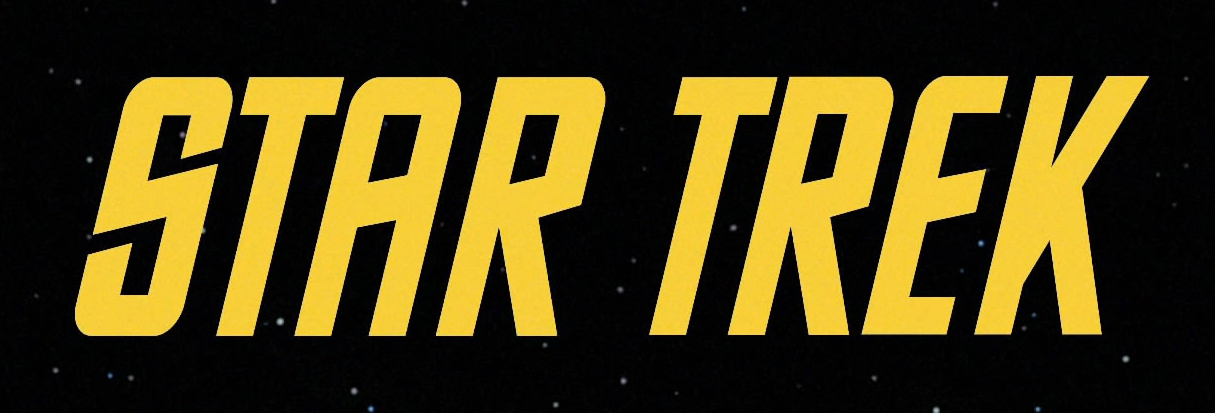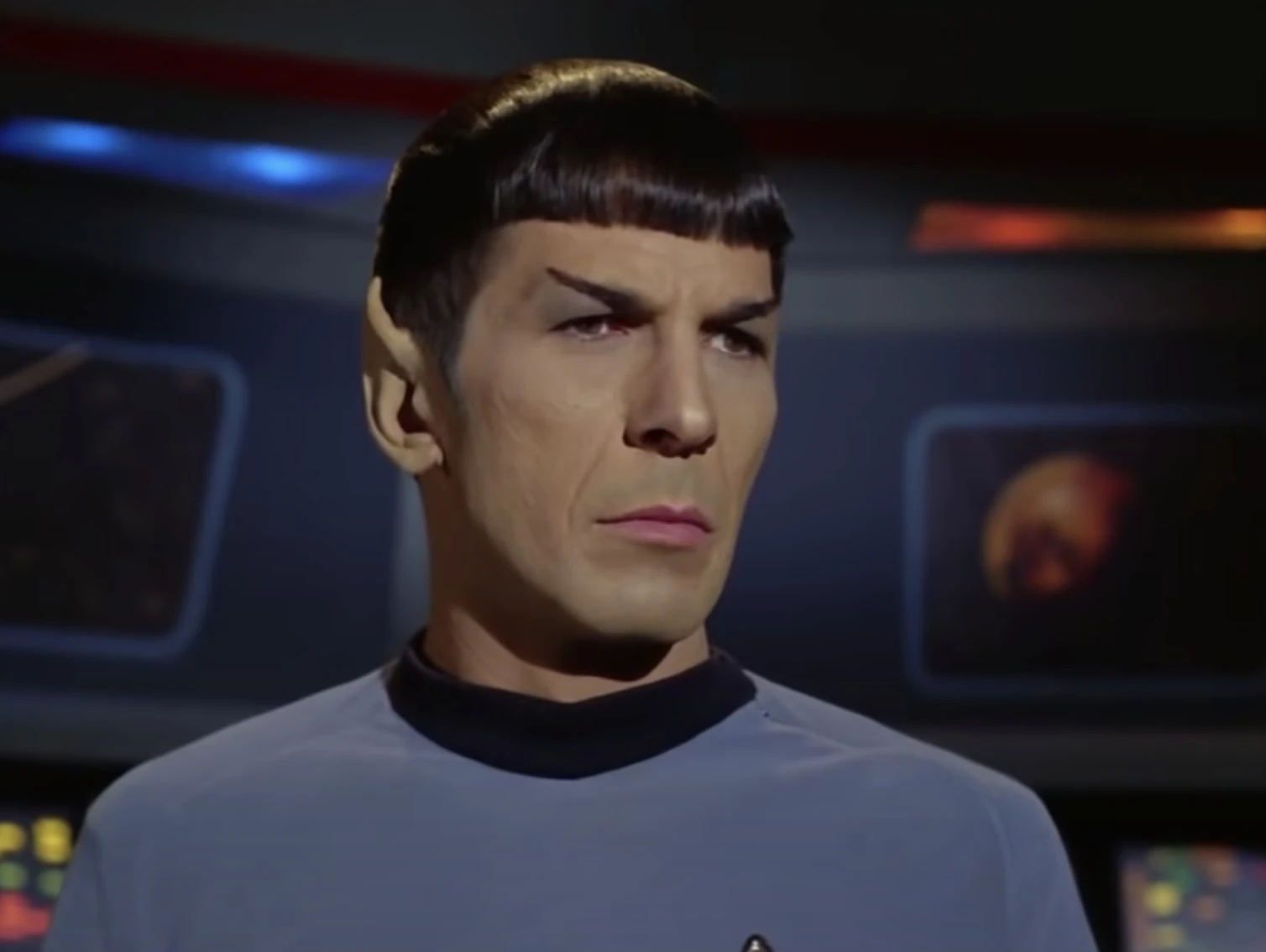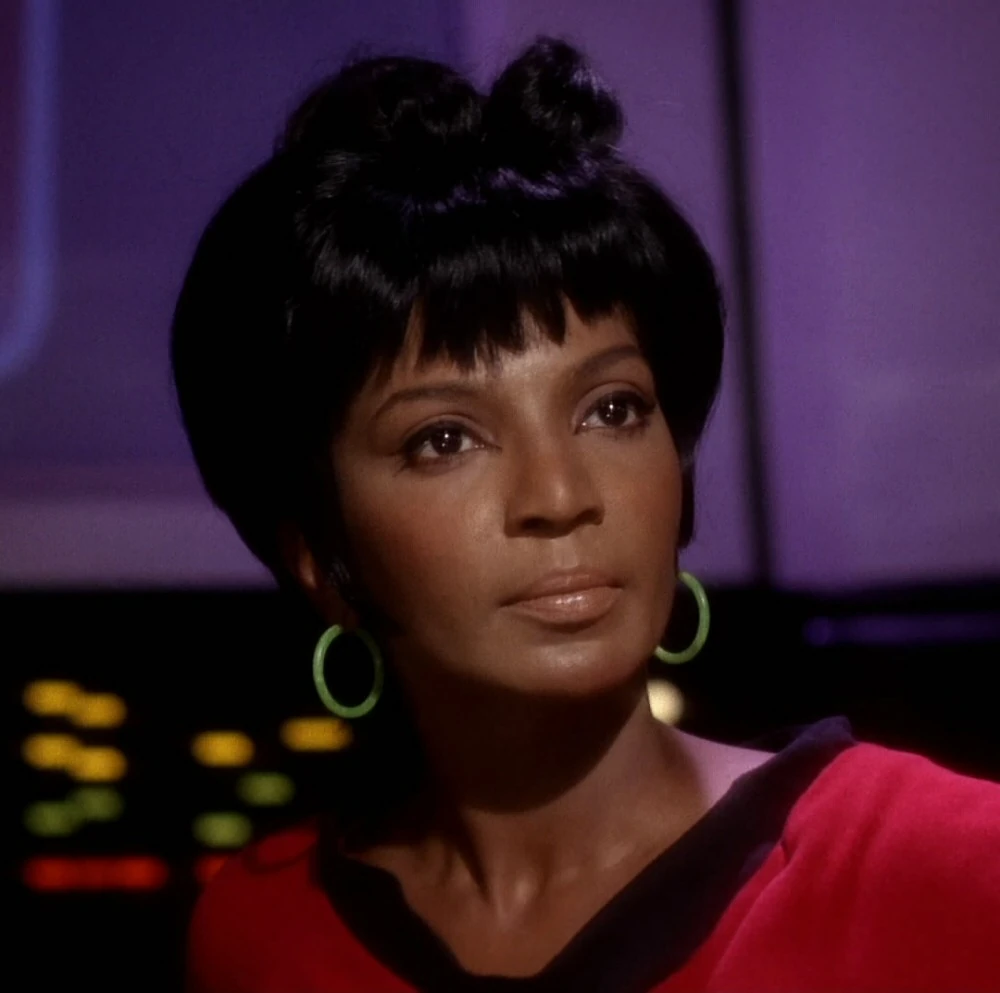 |
| via Memory Alpha |
How did this happen? What is it about this one science fiction program that inspired such a legacy? To be sure, the quality of stories was strong in the beginning, the characters appealing. World building was excellent, though that could be said for any number of other shows on TV in the late 1960s. High tech sci-fi was fun but not exactly unprecedented. No, there was something more to it. Over time, as I got to know the characters better and understand the relationships between them, I believe I figured it out. Or at least I found what makes Trek work for me, which seems as good a place to start as any.
Trekkies traditionally fall into two camps: those who prefer the original series (TOS) and those who prefer The Next Generation (TNG) and its successors. I went into this adventure with a strong TNG bias. I knew the later show better and preferred, among other things, its stronger character development, long one of the main arguments from the TNG wing. Most of TOS focuses on three characters: James Kirk, Captain; Spock, First Officer, and Leonard McCoy, Chief Medical Officer. Back stories on even those three are scant in comparison to the rich personal histories granted TNG's Enterprise crew. 79 episodes later, I still feel the argument falls in TNG's favor. But the argument misses the point.
The original Star Trek is ultimately driven not by the individual characteristics of the three leading men but by the dynamics of the relationship between them. Any casual fan could tell you that Spock is the constant, reliable voice of Logic. It doesn't take long, then, to recognize the temperamental McCoy as an advocate for Emotion. In weighing the input of his two advisers, Kirk must exercise Judgment. Sometimes, he decides in favor of Spock, other times McCoy, but usually somewhere in between. The consideration is the important thing as the three lead their faithful crew in exploring the unknown.
But to what end? This id-ego-superego arrangement was all very clever but not enough to explain small children wearing Vulcan ears at ComicCon nearly half a century later. A quick glance around the Enterprise bridge set offers other clues. Over the captain's right shoulder sits Lt. Uhura, Chief Communications Officer, an African character played by an African American woman. In the foreground are Lt. Sulu, Helmsman, and Ensign Chekov, Navigator. Sulu is played by a Japanese American who had spent part of his childhood in internment camps. Chekov is portrayed as Russian. Those choices were not accidental.
Star Trek, like any creative expression, was a product of its own time and place. Casting an African American woman in a position of authority for the first time in American television history was no subtle gesture during the ongoing Civil Rights Movement of the mid-to-late '60s. Nor was creating a sympathetic Asian character at a time when the nation had been at war in East Asia for much of the previous quarter century. Nor was establishing a likeable Russian character during the darkest depths of the Cold War. And let's not forget, there was that guy with the pointy ears, too. In 1966, many Americans were marching, others burning draft cards, others forming a new counterculture - all in protest of government policies. Gene Roddenberry, a former military pilot and policeman who had seen plenty of the world's evils first hand, didn't do any of those things. Instead, he created a television show.
Roddenberry sold Star Trek as "a Wagon Train to the stars." But his vision for the project obviously ran a lot deeper. The strongest forces in American science fiction to that point had been Flash Gordon and B-movie horrors. In both idioms, the approach to alien life forms was get them before they get us. Along with the bright colors, the cool gadgets and all the other bells and whistles, Star Trek brought a new approach to confronting "the other." Those folks working together on the bridge of the Enterprise were a sign of a more enlightened time in Earth's history. Having learned to get along better with one another, humanity was worthy of engaging with alien species. Encounters with unfamiliar beings would not be driven by conquest, exploitation or conversion. We would learn from the new, not destroy it.
The early converts were few but devoted. For the broader populace, the idea required simmering. Two decades later, when new stories found their way to television, the names had changed but the basic philosophy remained. In the end, it hardly matters if one prefers Kirk or Picard. Star Trek is no one character or even cast of characters. Trek is an approach to the unknown, weighing Logical and Emotional considerations with thoughtful Judgment. Trek is hope for a better world. That's why we still care 50 years later.
*****
It's time to hand out the hardware...
Favorite Episode: "Journey to Babel"
Sarek and Amanda, Spock's parents, are aboard the Enterprise en route to a diplomatic conference. Sarek suffers a "cardiovascular malfunction." Only a transfusion of Spock's blood can save him and the son readily submits to an experimental procedure to save the life of the father. Duty to the Enterprise, however, interferes with the treatment and Spock must choose between his loyalties to family and Starfleet. Sarek and Spock both know logic dictates that the mission should come first but Amanda, Spock's human mother, disagrees. She confronts her son in private. When Spock stands his ground, she slaps him and storms out of the room. We never see Spock's face after the slap. He moves towards the closed door and rests a hand on it. That simple gesture tells us everything we need to know about Spock. No contest: Trek's finest moment.
Least Favorite Episode: "The Way to Eden"
The Enterprise picks up a band of hippy types in search of their own utopia. They sing truly awful songs. There are probably weaker stories in Star Trek but none made me cringe quite like those songs.
Favorite Character, First Tier: Spock
 |
| via Memory Alpha |
Favorite Character, Second Tier: Uhura
 |
| via Memory Beta |
Uhura is more than just a political statement. Of Trek's second tier of characters, she is the most nuanced. On the bridge, she projects a confident, yet gentle demeanor. In the officer's lounge, she sings to her crew mates. Nichols herself has admitted that her favorite stories are the ones in which she wears civilian clothes and projects a more sensual femininity.
Favorite Guest Star: Mark Lenard
 |
| via Memory Alpha |
10 Must-See Episodes
If ever a friend or loved one should ask me for a quick tour of Star Trek's originals, I would offer the following collection, in order of original air date:
"The Corbomite Maneuver" - The first, clear glimpse of Star Trek's moral compass.
"Balance of Terror" - Our introduction to the Romulans, this was my favorite first season episode. The exchanges between Kirk and the Romulan Commander are exquisite.
"Space Seed" - We meet Khan, one of Star Trek's most important recurring characters. Again, the highlight is the verbal sparring between Kirk and a powerful nemesis.
"Errand of Mercy" - Our introduction to the Klingons. The Federation and the Klingon Empire vie for control of the planet, Organia. The natives are peaceful and seemingly helpless. In a wonderful turn, the Organians turn out to be quite powerful indeed and send both of the other parties away with a good scolding. Our heroes aren't morally irreproachable after all.
"City on the Edge of Forever" - The most revered episode of the original run, I can't say it's my favorite. It's a time travel narrative and Star Trek doesn't usually do well with those, in my opinion. But the overall quality is undeniable and I would not be a good guide if I did not include it in my tour.
"Amok Time" - We get to visit the planet Vulcan. Enough said.
"Mirror, Mirror" - Through a transporter malfunction, Kirk, McCoy, Scotty and Uhura find themselves in a parallel universe where the Enterprise functions within entirely different moral parameters. The cultural meme of evil twins with goatees derives directly from this episode.
"The Journey to Babel" - My favorite of the whole bunch. See above.
"The Trouble with Tribbles" - A much mocked episode by the uninitiated, the tribbles tale is actually quite clever, a highly effective demonstration of narrative misdirection. It was nominated for three Emmys and a Hugo.
"The Enterprise Incident" - One third season episode made it on the list after all. Kirk and Spock infiltrate a Romulan ship in order to steal its cloaking device. We learn a lot about the Romulans in this story, mostly through the ship's commander, one of Star Trek's best female characters.
*****
The fun continues next week. Beginning Wednesday, March 4th, fellow blogger Maurice Mitchell and I will be exploring Star Trek: The Animated Series one episode at a time. You're welcome to join us! Details are here.
You made me want to re-watch, especially those faves you picked. I actually grew up with the show - my dad was a fan - and loved it then. But I grew to love the other incarnations as well and I adore the two new movies.
ReplyDeleteGrowing up, I was on my own exploring scifi. No one else in my family had any patience for it. My sister actively hates it. I watched a few Trek shows in syndication but not enough to hook me. I remember the tribble episode. Otherwise, all of the ones on my must-see list were new to me.
DeleteAt the time I never saw how groundbreaking the original series was but you've pointed out the amazing and daring project it was. For the record, as much as I enjoyed the original cast, I really love the restart with Chris Pine.
ReplyDeleteI've enjoyed the reboot films but I've not been entirely comfortable with their reinvented timeline. I'll be interested to watch them again sometime from this new perspective.
DeleteThere is a bit of enigma to Star Trek but, then, the same could also be said for Dr. Who. I mean, have you seen the first few episodes of that show? What made people love it?
ReplyDeleteObviously, with Trek, there was some magical combination of character dynamic and vision that spoke to the right people at the time.
Not long ago, we gave the First Doctor a try, through the first series and beyond, in fact. It was definitely rough going at times. That early BBC clunkiness is charming in its way, I suppose. I was very pleased when they got rid of Susan, the original companion. I could not take that woman's screaming!
DeleteLong term, I think the moral underpinnings have helped to preserve the Doctor, too. The fact that he doesn't carry a weapon is appealing. He beats the baddies by being more clever and more compassionate.
For me, Dr. Who doesn't really start until John Pertwee (3rd Doctor). I like the first well enough, but I watched him in retrospect after I formed an opinion of what the Doctor should be like, and he doesn't quite get there. Much closer than the 2nd Doctor, though. Oh my gosh, I can't stand Troughton.
DeleteI do wish sometimes that the current series relied more on cleverness rather than luck or the sonic screwdriver or it actually just being the companion who does something extraordinary in the end. I miss Tom.
I miss Moffat actually writing. The recent Xmas episode was really very good, the best in a while. Wouldn't you know, Steven wrote it himself! Not co-written, just him. Look back over the 21st century series and most of the true, standout, blow your mind episodes are his: "The Empty Child," "Silence in the Library," "Blink," of course, and many many others. He's the best TV writer in the English-speaking world. I'm sure the executive producer title is a lot better for his bank account but it's a waste of talent for him to let other people write.
DeleteThat's it! They should give Steven Moffat a Star Trek series!
Oh and as long as we're talking about companions and missing people, I'm still not over Amy Pond. That one could take a while for me.
Oh, yeah, I've been saying for a while that Moffat is the best writer in TV, right now. Not just because of Who. Or Sherlock. Did you see Jekyll? Awesome show.
DeleteI haven't seen the Christmas episode, yet, because we are only just now finishing up season 7.
I haven't seen Jekyll. But have YOU seen Coupling? That's the comedy series that put him on the map in the UK. The USA knockoff was embarrassing but the original is a true gem.
DeleteI think I saw one episode, but I don't remember which version it was. I'll have to check into it again.
DeleteIf you're not up for a full on binge, I highly recommend "Inferno," series 1, episode 4.
DeleteProbably, I will start at the first episode. I hate watching out of order.
DeleteI am the same way. Enjoy.
DeleteThanks for this insightful post...guess I never thought about it in depth!
ReplyDeleteThanks, Kelly!
DeleteTruly awesome breakdown of a series that has captivated millions. Thanks for being my wingman on all things ST.
ReplyDeleteV:)
My pleasure, Veronica.
DeleteI think it is not only the great cast and how well rounded they were but it showed hope. This was the time of the Vietnam War, the Cold War and people were scared silly. In comes Star Trek which shows that we have evolved into a peaceful planet and no longer worry about racism, money etc... They do touch on these issues with the Klingons and the Romulans and even Mr. Spock being half human but it brings out a more positive feel. The sets are not all dark grey, blue and black but are comfortable and are to show that people are to be having nice quarters and have their own lives on the ship. This is the only show I can think of that brings this positive message. The Star Trek franchise is unique in this way and I wish more would be made like this. I love your top 10 list
ReplyDeleteThey definitely made the most of color film technology. My blogger pal Cygnus commented on that a while back, how Trek and a lot of shows and movies of the era set out to dazzle with color simply because they suddenly could.
DeleteIt's a great point that Star Trek goes beyond individual series or episodes. It's a cultural institution and will continue to grow and evolve. Great must-see list too!
ReplyDeleteThanks, Maurice. I'm looking forward to our upcoming project!
DeleteThanks for sharing your interesting views, made me think!
ReplyDeleteMy pleasure.
DeleteI prefer the original show since it reminds me of my childhood. I caught a little bit of the new shows, but wasn't enraptured. Either way, I think it's amazing such a world was created with many devoted fans.
ReplyDeleteThe original show left a very broad canvas to be filled.
Delete